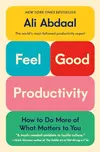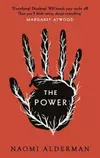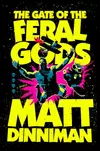Oliver Howard

Really well written. There were only one or two short stories that didn't fully land with me, the rest were amazing and everybody should read them. Some hard-hitting moments were made really well by his writing style.
Really well written. There were only one or two short stories that didn't fully land with me, the rest were amazing and everybody should read them. Some hard-hitting moments were made really well by his writing style.

This book series has a reputation for being Sanderson's best work, so naturally, my expectations were extremely high. I thoroughly enjoyed the Mistborn books, so it was difficult to imagine a series that far surpasses it, but Sanderson did it.
It's uncommon to find a fantasy novel with multiple perspectives where every character is genuinely likable, but Kaladin, Shallan, and Dalinar all have become some of my favorite characters in all of fantasy. Dalinar in particular stood out to me. I found his conflict throughout the book extremely compelling and his character arc felt full and well-earned. I may just have a soft spot for Ned Stark-type characters, but I found Dalinar's strive for honor to be more nuanced than other similar characters. I also think that his giving up his Shardblade was a perfect place for his story to conclude at the end of book one because he is literally following the first line of the Immortal Words -- "Life before death". He's choosing Kaladin and the Bridgeman's lives over his own ability to bring death to others.
Kaladin and Bridge Four was the action highlight of this book. These chapters felt so well-paced and easy to read.
Shallan's chapters were a nice pallet cleanser for the other perspectives. A book being 1200+ pages cannot succeed without a bit of diversity in voices, so the slower, more intellectual chapters were very much needed.
Overall, incredible book. Worth the hype.
This book series has a reputation for being Sanderson's best work, so naturally, my expectations were extremely high. I thoroughly enjoyed the Mistborn books, so it was difficult to imagine a series that far surpasses it, but Sanderson did it.
It's uncommon to find a fantasy novel with multiple perspectives where every character is genuinely likable, but Kaladin, Shallan, and Dalinar all have become some of my favorite characters in all of fantasy. Dalinar in particular stood out to me. I found his conflict throughout the book extremely compelling and his character arc felt full and well-earned. I may just have a soft spot for Ned Stark-type characters, but I found Dalinar's strive for honor to be more nuanced than other similar characters. I also think that his giving up his Shardblade was a perfect place for his story to conclude at the end of book one because he is literally following the first line of the Immortal Words -- "Life before death". He's choosing Kaladin and the Bridgeman's lives over his own ability to bring death to others.
Kaladin and Bridge Four was the action highlight of this book. These chapters felt so well-paced and easy to read.
Shallan's chapters were a nice pallet cleanser for the other perspectives. A book being 1200+ pages cannot succeed without a bit of diversity in voices, so the slower, more intellectual chapters were very much needed.
Overall, incredible book. Worth the hype.

Ali Abdaal’s Feel-Good Productivity is a refreshing take on the personal productivity genre that prioritizes emotional well-being over hustle culture. Instead of the usual “grind harder” rhetoric, Abdaal introduces three core challenges to meaningful productivity—Energize, Unblock, and Sustain—and guides readers through each with a combination of scientific studies, philosophy, and lived experience.
In the best way possible, it is clear that Abdaal’s background is as a content creator: his writing is accessible, warm, and actionable without being self-congratulatory or preachy. The ideas feel grounded in both evidence and real life. While there are a few moments of repetition (the sections about motivation), they didn't feel too out of place and did not interfere with the flow of the narrative.
Some of the strongest sections explore the psychological underpinnings of productivity. The Energize section delves into how play, people, and power fuel motivation. The Unblock chapter breaks down how emotional blockers like fear, uncertainty, and trouble getting started can be overcome using practical tools like the 5-minute rule, cognitive reappraisal, and “the Batman effect.” In Sustain, Abdaal tackles conservation, recharging, and alignment in a way that feels empathetic, offering concepts like The Reitoff Principle, alignment experiments, and the Odyssey Plan as tools for reflection and recharge.
If you’re someone who finds traditional productivity advice overwhelming, rigid, or joyless, Feel-Good Productivity offers a human-first, flexible alternative.
Ali Abdaal’s Feel-Good Productivity is a refreshing take on the personal productivity genre that prioritizes emotional well-being over hustle culture. Instead of the usual “grind harder” rhetoric, Abdaal introduces three core challenges to meaningful productivity—Energize, Unblock, and Sustain—and guides readers through each with a combination of scientific studies, philosophy, and lived experience.
In the best way possible, it is clear that Abdaal’s background is as a content creator: his writing is accessible, warm, and actionable without being self-congratulatory or preachy. The ideas feel grounded in both evidence and real life. While there are a few moments of repetition (the sections about motivation), they didn't feel too out of place and did not interfere with the flow of the narrative.
Some of the strongest sections explore the psychological underpinnings of productivity. The Energize section delves into how play, people, and power fuel motivation. The Unblock chapter breaks down how emotional blockers like fear, uncertainty, and trouble getting started can be overcome using practical tools like the 5-minute rule, cognitive reappraisal, and “the Batman effect.” In Sustain, Abdaal tackles conservation, recharging, and alignment in a way that feels empathetic, offering concepts like The Reitoff Principle, alignment experiments, and the Odyssey Plan as tools for reflection and recharge.
If you’re someone who finds traditional productivity advice overwhelming, rigid, or joyless, Feel-Good Productivity offers a human-first, flexible alternative.

Mixed feelings on this one. While I enjoy some aspects of King's writing, some parts I really dislike. I thoroughly enjoyed his ability to include small insignificant details that contribute to a living, breathing world. What I didn't like was the constant sentence breaks that he kept doing (like this) that made some scenes hard to follow.
Aside from that I thought the plot was, well, fine. It is clear that this was his first major novel because his skills improve significantly with his later books.
Overall it was a pretty easy and enjoyable read, but lacked some substance and refinement.
Mixed feelings on this one. While I enjoy some aspects of King's writing, some parts I really dislike. I thoroughly enjoyed his ability to include small insignificant details that contribute to a living, breathing world. What I didn't like was the constant sentence breaks that he kept doing (like this) that made some scenes hard to follow.
Aside from that I thought the plot was, well, fine. It is clear that this was his first major novel because his skills improve significantly with his later books.
Overall it was a pretty easy and enjoyable read, but lacked some substance and refinement.

A solid follow-up to the first installment. The characters are just as complex and nuanced as ever, with some compelling development from almost the entire cast. Abercrombie effectively differentiates the characters at the start of this book from the characters at the end. It doesn't get 5 stars because the plot still feels a little hollow, serving as a bridge to the next book.
A solid follow-up to the first installment. The characters are just as complex and nuanced as ever, with some compelling development from almost the entire cast. Abercrombie effectively differentiates the characters at the start of this book from the characters at the end. It doesn't get 5 stars because the plot still feels a little hollow, serving as a bridge to the next book.
















